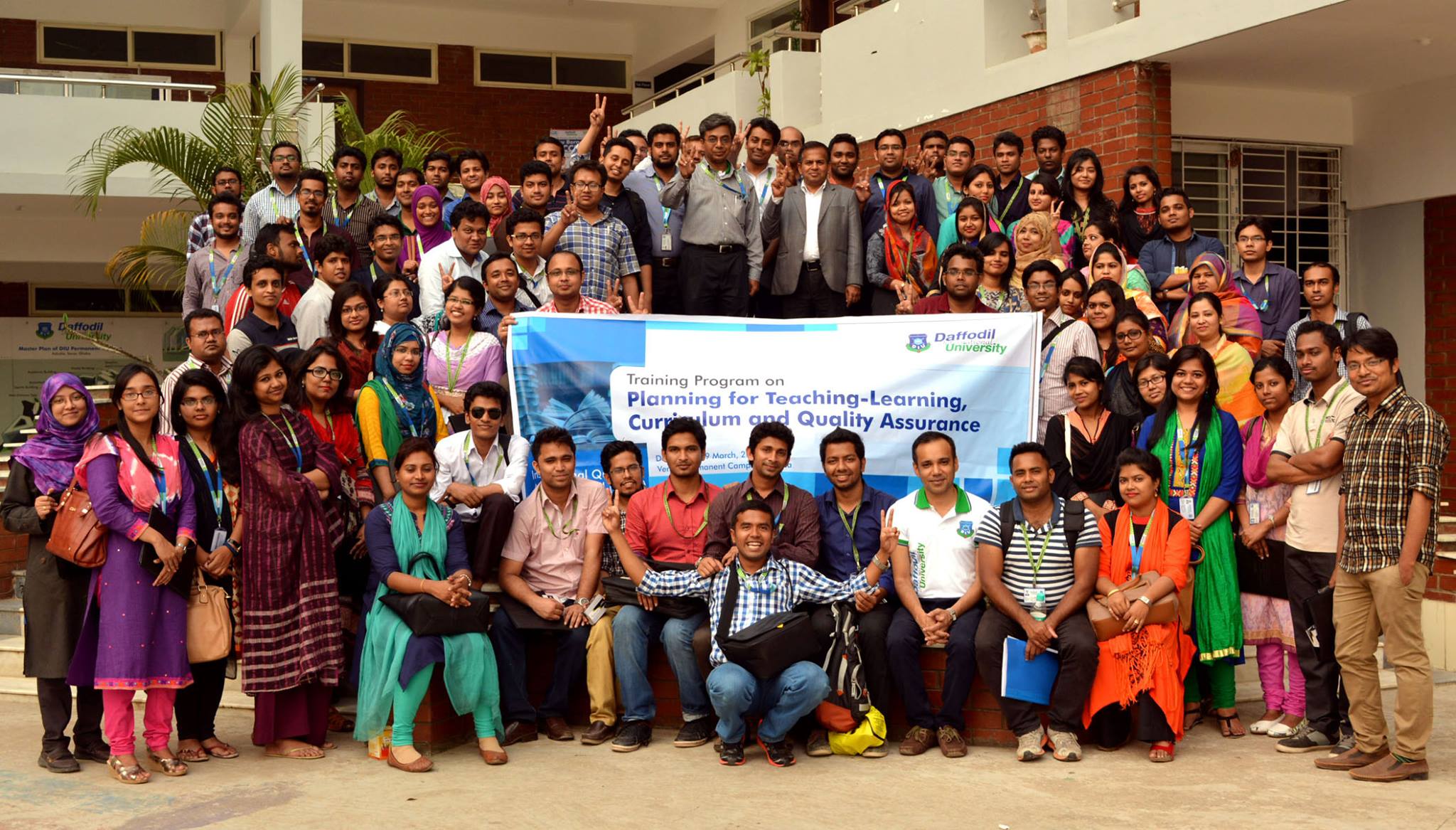A 4-day long training Program on “Planning Teaching-Learning, Curriculum and Quality Assurance” which was organized jointly by Institutional Quality Assurance Cell and Computer Science and Engineering Department of DIU at the permanent campus of Daffodil International University during March 06-09, 2016 concludes today. Master of the training program was Prof. Dr. Syed Akhter Hossain, Head, Computer Science and Engineering Department of DIU worked as Director of the training program. Best external resource person of the program was Engineer Enamul Kabir, Director (Training), Bangladesh Computer Council. Dr. Mostafa Kamal, Director (Academic, Administration & Development) also spoke in the inaugural program.

Dr. Sheak Rashed Haider Noori, Dr. S. M. Aminul Haque, Narayan Ranjan Chakraborty worked in the core team of the program. Dr. S.M. Mahbub Ul Haque Majumder,Dean, Faculty of Science and Information Technology grace the occasion.
In the first day of the training program, Prof. Dr. Syed Akhter Hossain mentioned the importance of quality teaching-learning, curriculum development and quality assurance of the university. He also mentioned that CSE Department had already proved a role model of the university which started outcome-based education program.
Various resource persons of the program were including Prof. Dr. M.H. Rahman, International Quality Assurance Expert, Learning synergy, Canada and Dr. Md. Zakir Hossain of AIT mentioned that faculty members of the University were being encouraged to practice participatory teaching and learning system in their classes with students.
Output of the four days program was: Students’ progress will be considered as the yardstick to assess teachers’ quality. Students are allowed and encouraged to practice new skills and introducing learning progressively. The interaction of teachers with students has a big impact on learning as well as the classroom climate. Faculties are already trying to have clear understanding of the goals in producing graduates with quality and implement the changing of teaching strategies/methods toward students’ learning outcomes, assessment toward students’ learning outcomes, verification of learning outcomes to show that the expected learning outcomes are understood across the institution, and are being consistently achieved, feedback from the stakeholders, and employers’ satisfaction for further development.
A total of eighty eight faculty members participated in the four-day training program. Director of the IQAC and Additional Director of the IQAC also present in the concluding ceremony.

